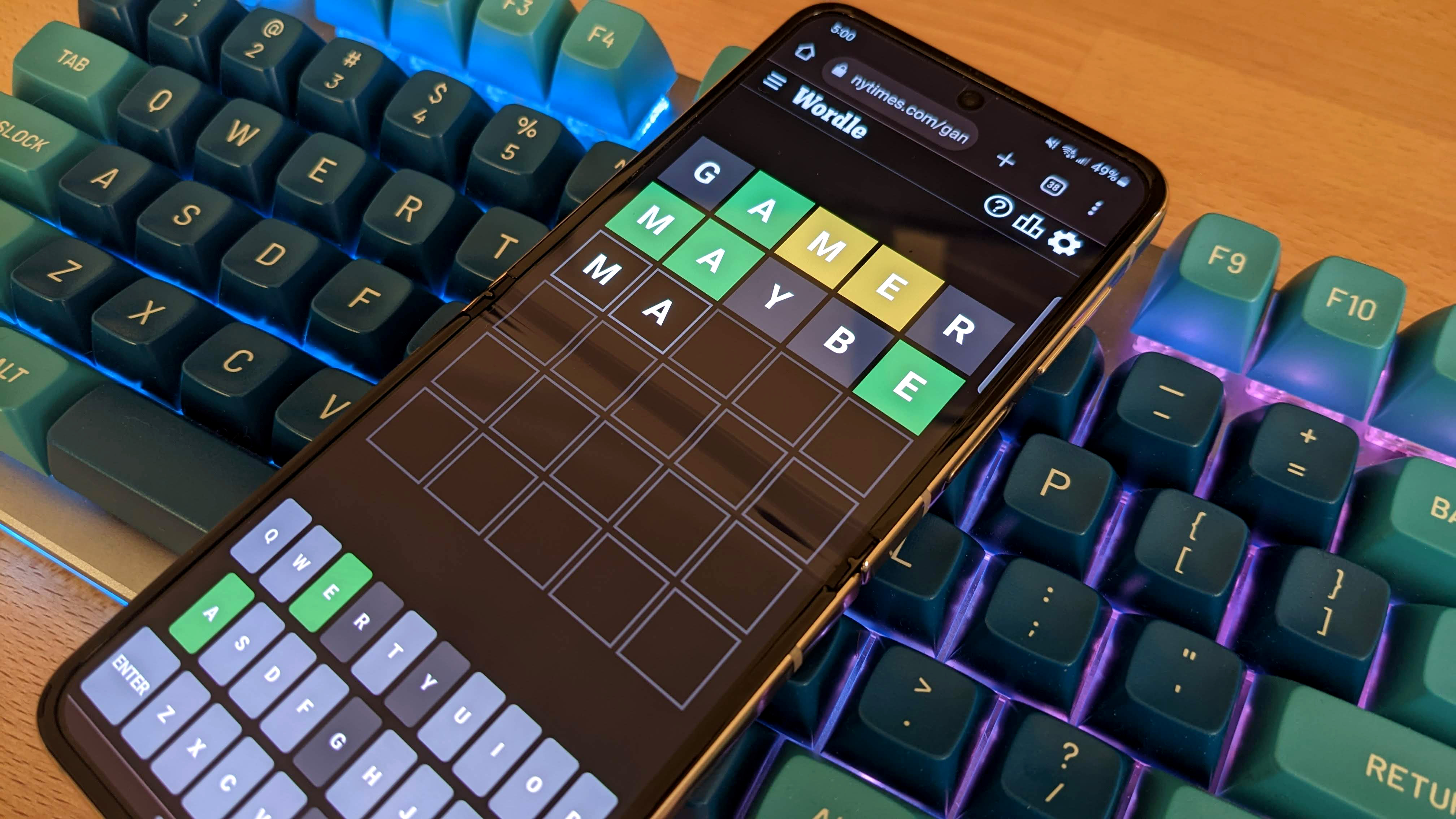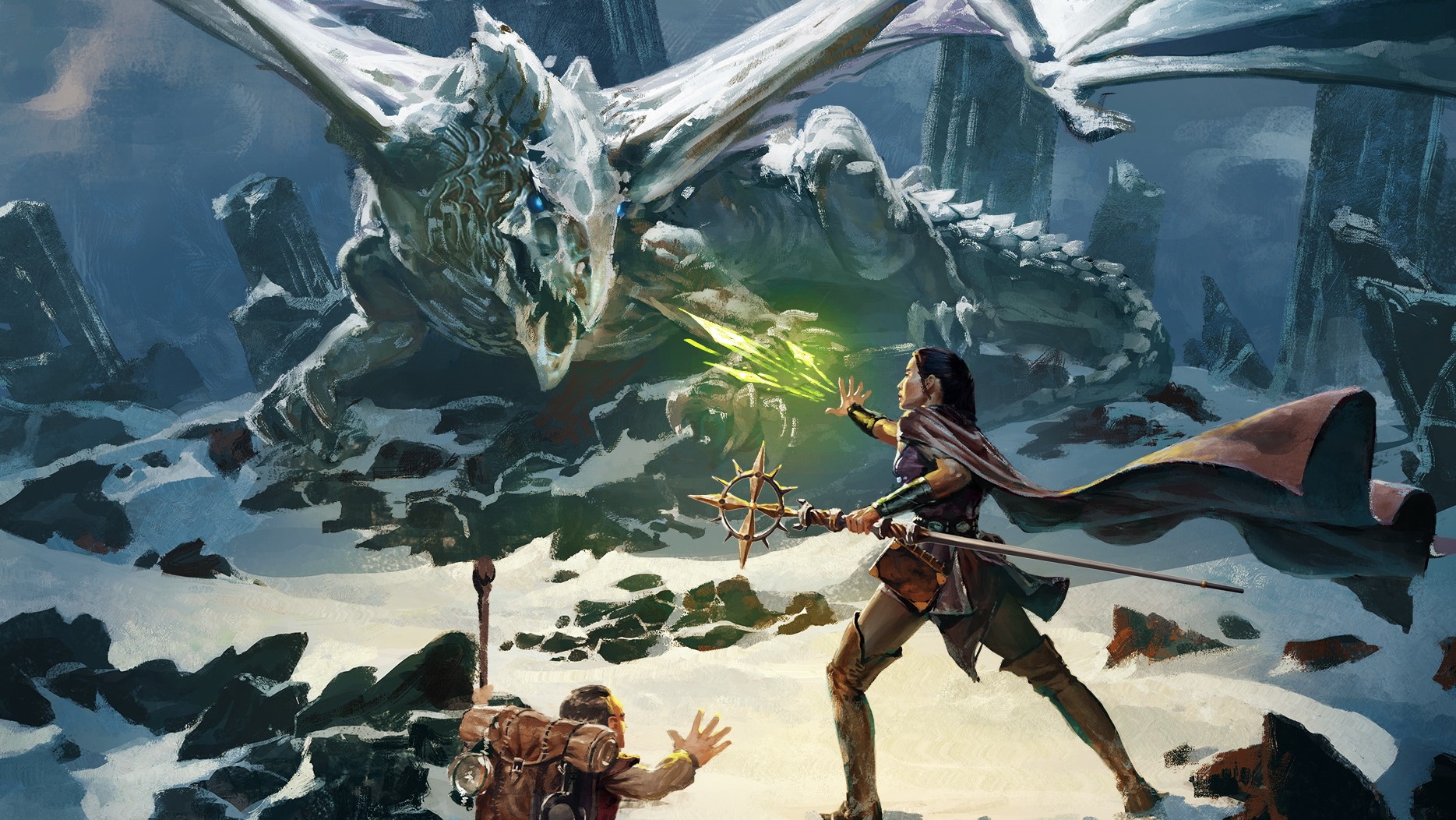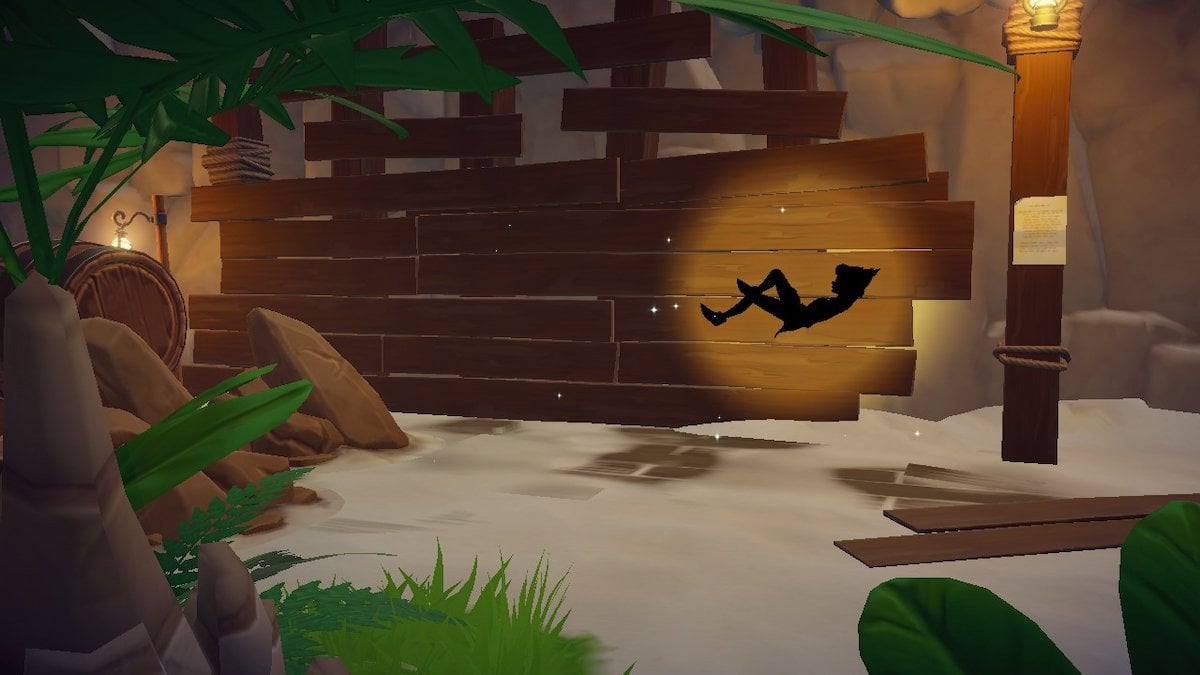
Embrace the mess.
My international squad of mercenaries—the not-quite-heroes of Jagged Alliance 3—were enjoying a day at the beach, following up on some intel that an explosives expert was hanging out there. Instead, they found themselves in a sandy minefield surrounded by foes. Naturally, a fight broke out. Several goons were grouped together, which was convenient for my shotgun-wielding medic. One turn in, half of the opposition were either dead or close to it. Then my mechanic stepped on a mine.
Chaos took hold. One of my squad went berserk, ran out of cover and just started spraying bullets. Another panicked, tried to flee and, of course, stepped on another mine. Someone thought it would be a good idea to toss a molotov into the mix. More mines went off. Bullets pinged off rocks and thudded into the sand as shots missed their targets. There was shouting and screaming and threats. A miraculous headshot finally ended the carnage, and somehow my mercs walked away with only nearly-fatal injuries. Just another day in the office.
(Image credit: THQ Nordic)
Jagged Alliance 3 might be a dense, flexible tactics game where planning and precision are demanded, but it absolutely loves to throw those plans into disarray. Mines, a hidden enemy, a jammed gun, some foul weather or some misfortune courtesy of the gods of RNG ensure that you won’t get too comfortable. You can play the same battle multiple times and have dramatically different experiences, even if your plan remains unchanged.
Despite being set in the fictional nation of Grand Chien (yes, a country called Big Dog) at the turn of the millennium, it still maintains an ’80s action movie vibe, with tonnes of violence and lots of tongue-in-cheek silliness. To rescue the country’s president and fight the Legion—the paramilitary group that’s taken over Grand Chien—you’ll have to hire an eclectic gang of mercs, most of them unabashed cliches, from the tank-top-loving Steroid—who gives out big Duke Nukem’s understudy vibes—to Ivan, a Russian lad who still sports a Soviet ushanka. If you’ve played Jagged Alliance before, you’ll spot a lot of familiar faces.
Throwing these big personalities into a brutal civil war is a recipe for disaster. But good tactics games thrive on disasters. Without the threat of everything going to shit, XCOM would never have been the wonderfully stressful, heart-pounding game that reignited the love for squad-based tactical chaos. One day we might be able to get through an article about a turn-based tactics game without summoning XCOM, but Firaxis’s masterpiece is relevant here because of the ways that Jagged Alliance 3 approaches things differently.
Steady aim
(Image credit: THQ Nordic)
Unlike XCOM and the majority of games in this vein, Jagged Alliance 3 eschews telling you the odds—a move Han Solo might appreciate but which I was slightly worried about. The likelihood of you hitting your target feels like essential information, allowing you to prioritise enemies and reposition your squad for a more effective assault. I thought I’d miss it, when in fact I ended up revelling in my ignorance. I was bolder, braver and frequently surprised.
The other benefit of the odds not being displayed is that it forces you to pay more attention. You won’t be able to figure out the exact odds yourself, but you can make a good guess based on the stats of the merc in question, how far away the enemy is, what their stance is, and if they are behind cover. You can simply listen, too, as your mercs will literally tell you if it’s a risky shot. But without that number making you doubt yourself, you’ll be more likely to accept the risk.
You can always improve these invisible odds. Spending time scouting in real-time before you engage enemy forces will help you pick a better position for your assault, for instance. If you’ve got a marksman in your squad, you’ll want to get them up high, whether that’s a guard tower or just the roof of a building. Thankfully, all of your mercs are agile climbers. And when you’re selecting targets—not just enemies, but specific parts of their body—you can spend action points to be more precise, forcing you to pick between accuracy and flexibility.
(Image credit: THQ Nordic)
It’s a lot more fun to watch fights play out when you’re not able to predict the outcome, too. When I played in co-op, bombastic cheering and cries of anguish accompanied every encounter—though some of those cries were thanks to prevalent desync issues. I hope they get fixed because Jagged Alliance 3 is a game I would love to play more with a bud.
It’s a lot more fun to watch fights play out when you’re not able to predict the outcome.
There’s a great flow to it when you’re part of a duo, as you both get to explore each map at your leisure in real-time, controlling the mercs that you specifically hired. Splitting the team up can get you in trouble if you encounter more enemies than you can handle alone, but exploration goes at a much brisker pace. And when a turn-based fight kicks off, you’re able to command your mercs simultaneously, so there’s very little waiting around.
With so many tactics games being built around a strict mission structure, Jagged Alliance’s free-form sandbox feels incredibly liberating. Your core mission is to rescue the president, and throughout your time in Grand Chien you’ll encounter plenty more missions, but you’re largely free to explore the nation as you please and set your own priorities, like preparing an ambush for one of the dynamic diamond-laden convoys to bolster your bank balance. When you clear a sector of the strategic map, you’ll place it under your control, but your territory can be invaded. This is not only extremely rude, it’s also a problem because these sectors can provide you with the resources required to continue the war. Run out of cash and you won’t be able to renew mercenary contracts.
Grand tour
(Image credit: THQ Nordic)
To avoid too much backtracking, you can create multiple squads of mercs, but that’s expensive and you’ll want every merc you can spare to be working towards your various objectives. Thankfully, you can also rely on local militias. Using your mercs with the highest leadership stats, you can train the locals to defend themselves. This isn’t free, and while they’re running drills your mercs will not be able to do anything else, but it’s better than making your squads protect your territory. Other operations include training your mercs and treating injuries—the latter of which you’ll end up doing a lot if you’re as reckless as I am.
Managing your squads is a lot of work. This is a full-blown RPG as well as a tactics romp, so each character has a distinct personality and backstory, personal inventory, special skills—hacking, healing, repairing—and even demands. Some mercs won’t work together because they hate each other, others will get along well and even recommend you hire their pals, and sometimes you’ll need to throw them a bit more cash to make them work with an arsehole. As you progress you’ll be able to hire better mercs with more desirable skills and better equipment, so you won’t need to spend time training them or scrounging around for gear, and the temporary nature of the mercenary contracts means you’re encouraged to swap mercs and experiment with your squads. If you’re really vibing with someone, though, you can always rehire them.
You might expect the fights to be the meat of Jagged Alliance, but the RPG and open exploration elements are just as integral. You’re dropped into Grand Chien with very little, so you need to spend a lot of time looting and making friends if you’re going to defeat the Legion. Intel is massively important, too, which can be gleaned from chatting to locals and snooping around, unlocking new opportunities.
(Image credit: THQ Nordic)
After the mess on the mine-infested beach, I managed to find the explosives expert I learned about, and got an opportunity to talk her out of helping the Legion, which would make a later fight a lot easier. Similarly, after liberating my first settlement, I was asked to help defend it from counterattacks by hunting down a very large gun, which I was told would be in a bunker. The bunker fight was a tricky one where I sadly learned that not all red barrels are explosive, screwing up a perfect plan, but we got through it. And a big gun was not the only reward. We uncovered a bounty of weapons, enough so that I wasn’t even tempted to tell the villagers to screw themselves and keep the big one for myself. OK, I was still a wee bit tempted, but only because I’m a dickhead.
The preview build was not without its issues, however. Along with the co-op desyncs, I encountered an unkillable enemy who broke a mission, the occasional bit of weird enemy behaviour like wasting turns or moving out of cover for no reason, and the free aim feature definitely needs another pass—something’s not quite right when my merc turns around and fires in the complete opposite direction. I really wish there were enemy vision cones, too, because I keep getting caught sneaking and it’s rarely clear why.
Most of my time in Grand Chien has made me eager to return, though. I knew I was in for some good times when I snuck up some stairs to assassinate a Legion lieutenant and less than a minute later the floor was gone and the lieutenant, his goons and one of my own mercs were stunned on the floor below. God, I love grenades.




